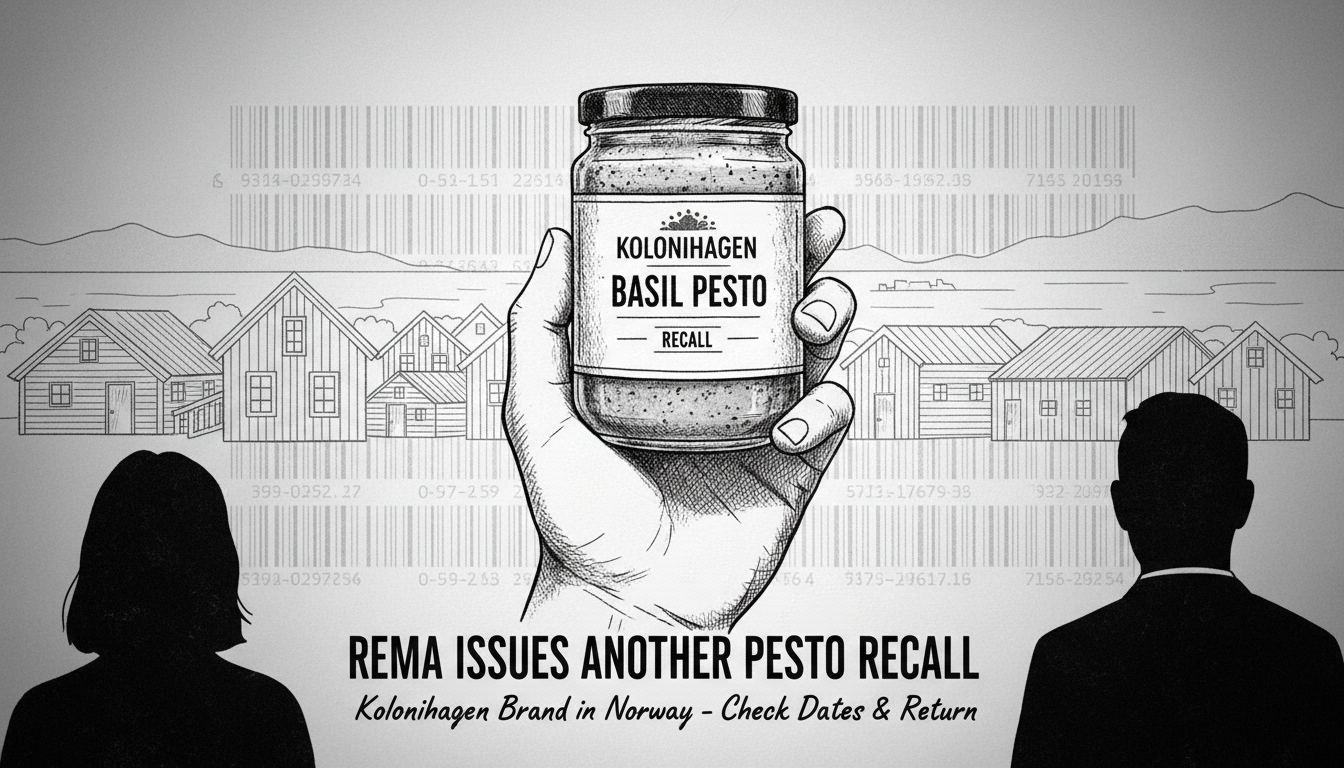Norwegian grocery chain Rema 1000 has announced another product recall for Kolonihagen basil pesto. The recall affects 130-gram containers with a specific expiration date of July 25, 2027. Stores are removing the product from shelves immediately. Consumers who purchased the affected pesto should dispose of it at home. They can then return to any Rema 1000 store for a full refund.
This marks the second recent recall involving Kolonihagen pesto products in Norway. The repeated safety issues raise questions about quality control processes within the supply chain. Norwegian food safety authorities typically monitor such recalls closely. They ensure compliance with national food safety standards.
Product recalls in Norway follow strict consumer protection protocols. The Norwegian Food Safety Authority (Mattilsynet) oversees these procedures. Their system requires retailers to promptly remove potentially hazardous products. Consumers receive clear instructions about returns and refunds. This particular recall appears limited to one specific batch. The targeted approach suggests identified contamination or production issues.
Norwegian consumers generally trust the country's robust food safety system. The quick response from Rema 1000 demonstrates this system in action. Still, repeated recalls for similar products can erode consumer confidence. Shoppers may begin questioning brand reliability. They might also wonder about broader quality assurance measures.
The recall process in Norway typically works efficiently. Consumers rarely face difficulties obtaining refunds for recalled items. Stores accept returns without receipts when batch numbers match. This consumer-friendly approach maintains trust in the food safety ecosystem.
What does this mean for international readers? Norway maintains some of Europe's strictest food safety standards. Even minor issues trigger immediate recalls. The system prioritizes consumer protection over corporate convenience. This incident shows those protocols functioning as intended.
Looking forward, consumers should check their pantries for the affected product. The specific batch carries the July 25, 2027 expiration date. Other Kolonihagen pesto varieties remain safe for consumption. The isolated nature of this recall suggests contained contamination risks.
Norwegian grocery recalls like this pesto withdrawal highlight the importance of food traceability. They also demonstrate effective consumer protection mechanisms. The quick store response and refund policy show system reliability. Still, repeated incidents warrant closer examination of production standards.

